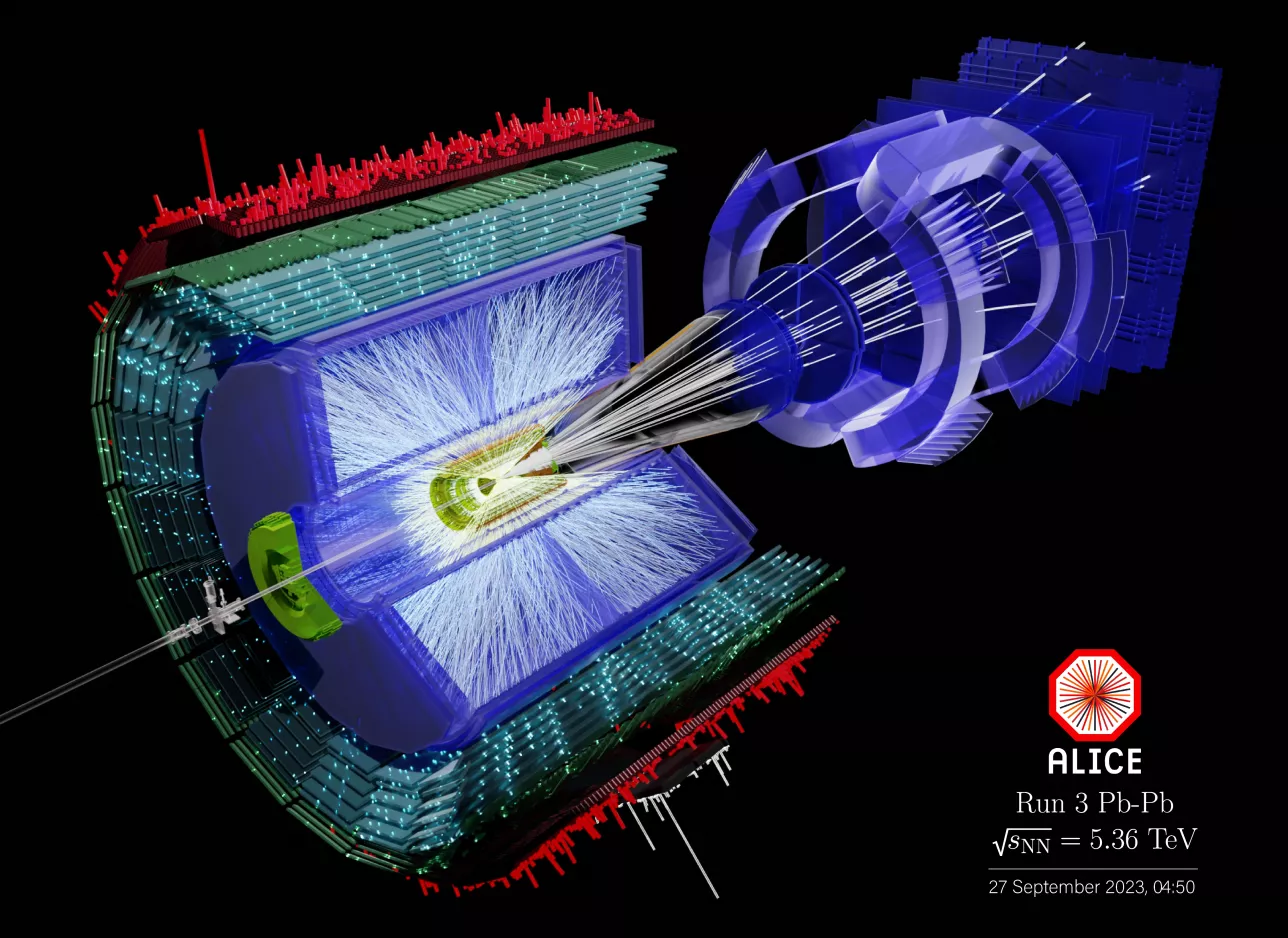Degree projects - ALICE
Bachelor and Master projects
ALICE experiment at CERN
The ALICE experiment is one of the four large experiments at the Large Hadron Collider (LHC) at CERN. It is dedicated to the study of the quark-gluon plasma (QGP), a new state of matter in which quarks and gluons are deconfined. The Lund ALICE group is involved in both data analysis and hardware development for upgrades and even a possible future ALICE 3 experiment.
LHC has revealed many remarkable new effects related to QCD/QGP. The Lund ALICE group is particularly interested in understanding how collectivity emerges in even the smallest systems at LHC and how correlations and fluctuations evolve from the smallest (proton-proton collisions) to the largest systems (central lead-lead collisions). Concrete projects typically evolves around measuring new observables that we want to test to see if the can improve our understanding. These are computer heavy analyses that requires some knowledge of Linux and C++ or a strong wish to learn both. These activities have a large overlap with the Lund phenomenological activities related to QCD and event generators.
The Lund group is also involved in hardware development for a new ultra-thin Silicon Inner Tracker to be installed in the next long LHC shutdown (between the ongoing Run 3 and the next Run 4). Activities there involve test beams, test setups in Lund and analysis and simulation of the new detector.

Thinking about thesis?
Find more information about the degree project course on Canvas.

